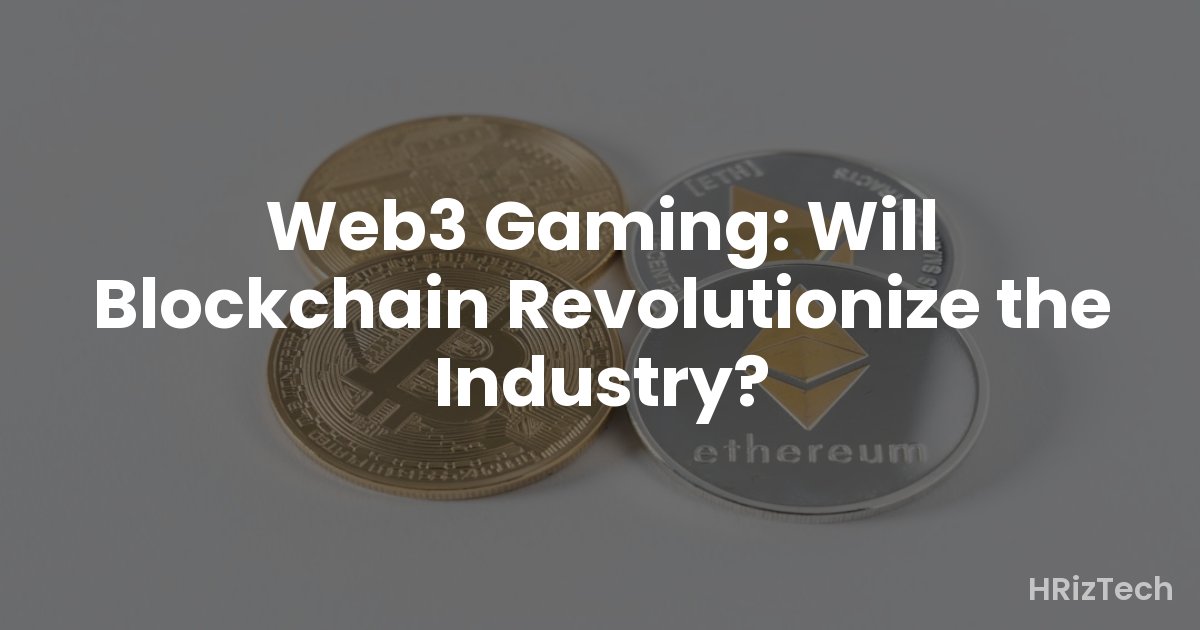Web3 Gaming: Will Blockchain Revolutionize the Industry?

Web3 Gaming: Will Blockchain Revolutionize the Industry?
The gaming world is buzzing with talk of Web3. But what exactly is it, and will it truly revolutionize how we play? Let's dive in.
- Web3 gaming leverages blockchain technology for enhanced player ownership and transparency.
- NFTs and play-to-earn models are key features, but scalability and regulation remain challenges.
- The future of Web3 gaming hinges on addressing user experience, security, and broader adoption.
- While potential is huge, widespread success depends on overcoming technical and regulatory hurdles.
Understanding Web3 Gaming
Traditional gaming often leaves players feeling like renters, not owners. You spend money on in-game items, but the game developers ultimately control them. Web3 gaming aims to change this by using blockchain technology to give players true ownership of in-game assets. Think of it as owning your digital sword, not just renting it. This ownership is facilitated through non-fungible tokens (NFTs).
NFTs: The Cornerstone of Web3 Gaming
NFTs are unique digital assets verified on a blockchain. In Web3 games, these can represent anything from characters and weapons to virtual land and in-game currency. Because they're recorded on the blockchain, their ownership is transparent and verifiable, preventing fraud and duplication.
Play-to-Earn (P2E): A New Economic Model
Many Web3 games incorporate a play-to-earn model, where players can earn cryptocurrency or NFTs by playing. This creates a new economic incentive, allowing players to potentially profit from their time and effort. However, the sustainability and fairness of P2E models are subject to ongoing debate, with concerns about economic imbalances and potential for exploitation.
The Promise and the Pitfalls
The potential of Web3 gaming is undeniable. Imagine a gaming world where your progress and assets are truly yours, transferable across different games, and protected by the security of the blockchain. But the road to this utopia is paved with challenges.
Scalability and Performance
Blockchain technology, especially in its current form, can struggle with scalability. Processing large numbers of transactions for a massively multiplayer online game (MMOG) can lead to slowdowns and high transaction fees, affecting player experience.
Regulation and Legal Uncertainty
The regulatory landscape surrounding NFTs, cryptocurrencies, and Web3 gaming is still evolving. Governments worldwide are grappling with how to regulate this nascent industry, creating uncertainty for developers and players.
User Experience (UX)
Many current Web3 games suffer from poor user experience. The technical complexities of blockchain technology can be daunting for casual gamers, and the user interfaces often lack the polish and intuitiveness of traditional games.
Security Concerns
While blockchain itself is generally secure, the ecosystem surrounding Web3 gaming is still vulnerable to exploits and scams. Players need to be vigilant about phishing attacks, malicious smart contracts, and other security risks.
The Sustainability Question
The environmental impact of blockchain technology, particularly energy-intensive proof-of-work systems, is a significant concern. The long-term sustainability of Web3 gaming depends on the adoption of more environmentally friendly consensus mechanisms.
The Future of Web3 Gaming
The future of Web3 gaming is far from certain. Its success depends on overcoming the challenges outlined above. Developers need to focus on improving user experience, ensuring security, and addressing scalability issues. Regulators need to create clear and fair guidelines to foster innovation while protecting players. Ultimately, the adoption of Web3 gaming will depend on whether it can deliver a compelling gaming experience that is accessible, secure, and sustainable.
Key Takeaways
- Web3 gaming offers players true ownership of in-game assets through NFTs.
- Play-to-earn models introduce new economic incentives but require careful consideration.
- Scalability, regulation, user experience, and security are critical challenges.
- The long-term success of Web3 gaming hinges on overcoming these challenges and delivering a compelling gaming experience.
So, what do you think? Will Web3 truly revolutionize gaming, or is it just another hype cycle? Let's discuss in the comments below!
}, { "@type": "Question", "name": "What are the benefits of Web3 gaming?", "acceptedAnswer": { "@type": "Answer", "text": "Benefits include enhanced player ownership, increased transparency, and the potential to earn cryptocurrency or NFTs." } }, { "@type": "Question", "name": "What are the challenges facing Web3 gaming?", "acceptedAnswer": { "@type": "Answer", "text": "Challenges include scalability issues, regulatory uncertainty, user experience concerns, security risks, and environmental impact of blockchain technology." } }, { "@type": "Question", "name": "What is the future outlook for Web3 gaming?", "acceptedAnswer": { "@type": "Answer", "text": "The future depends on overcoming technical and regulatory hurdles, improving user experience, and addressing sustainability concerns. Success will hinge on delivering a compelling and accessible gaming experience." } } ] }
Comments
wow
Best
thanks